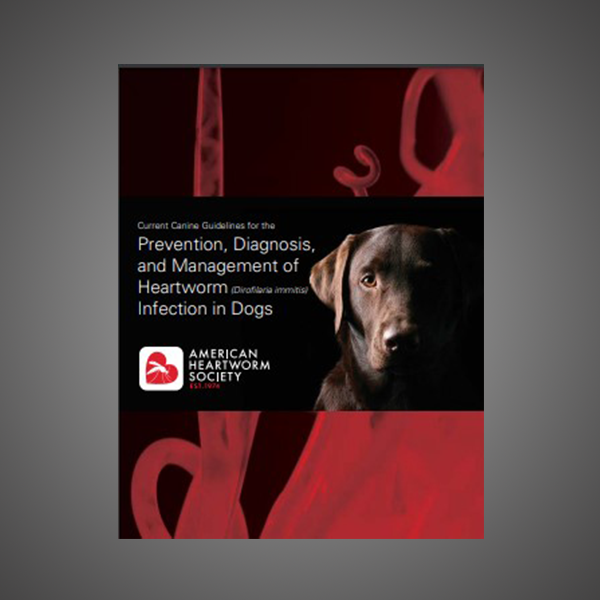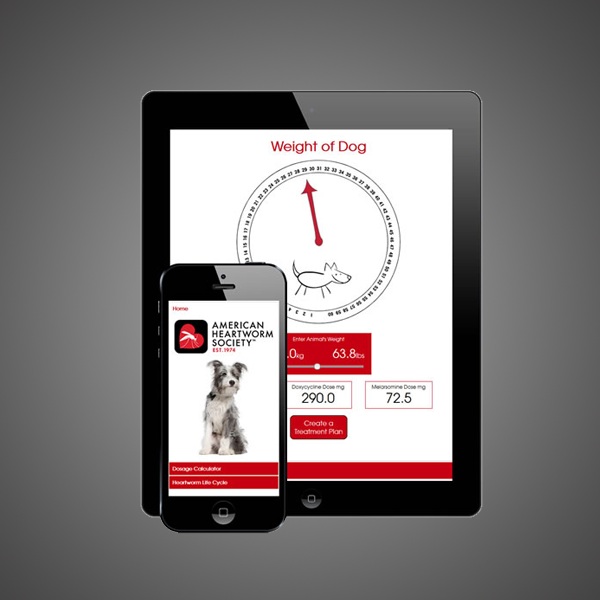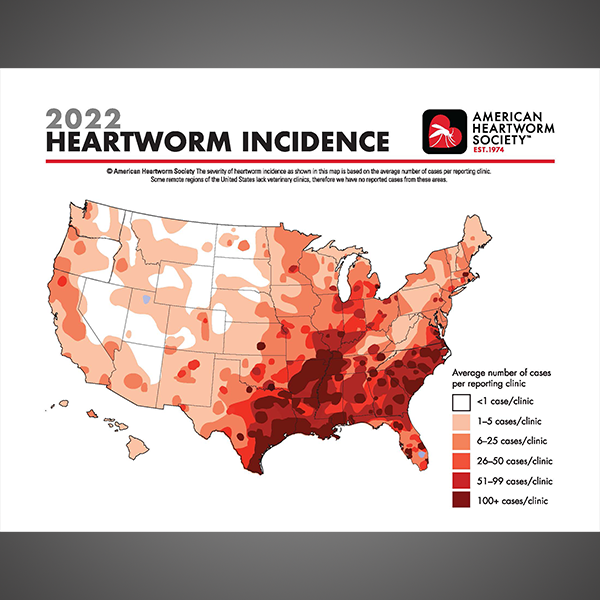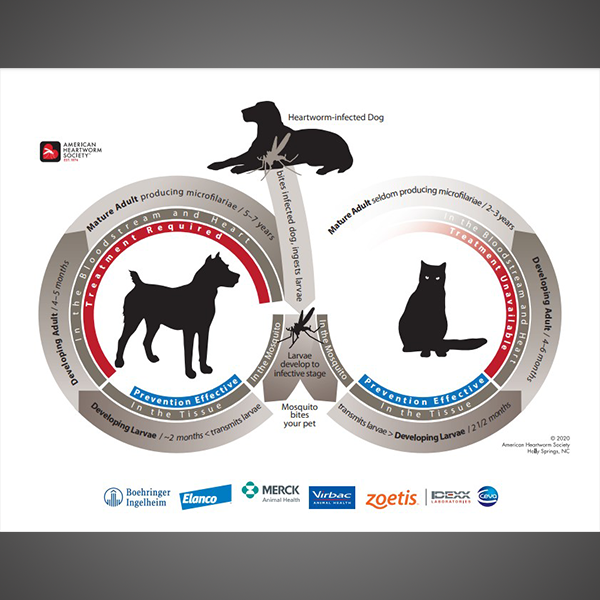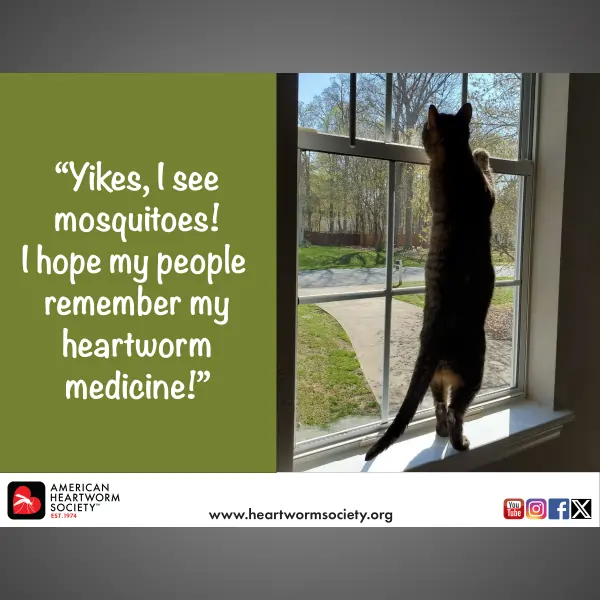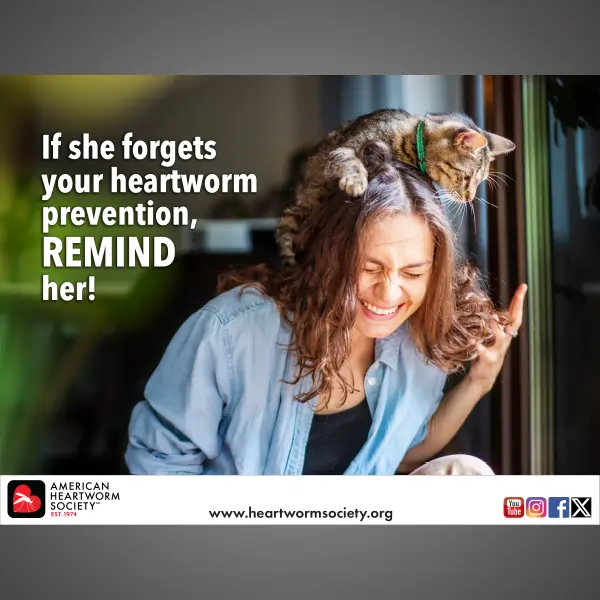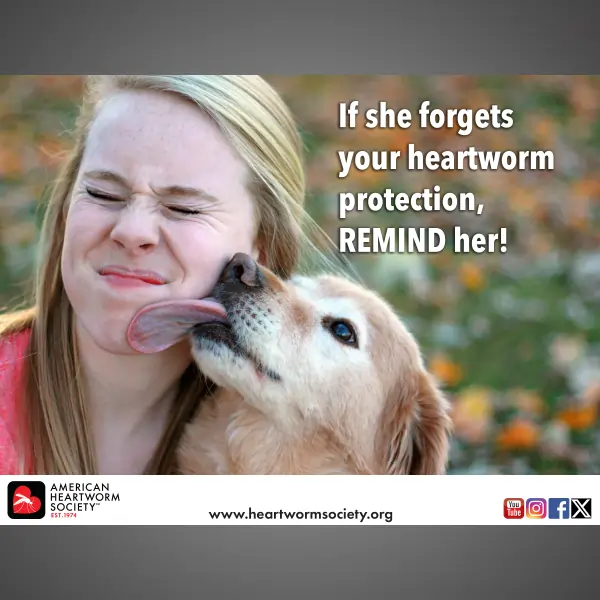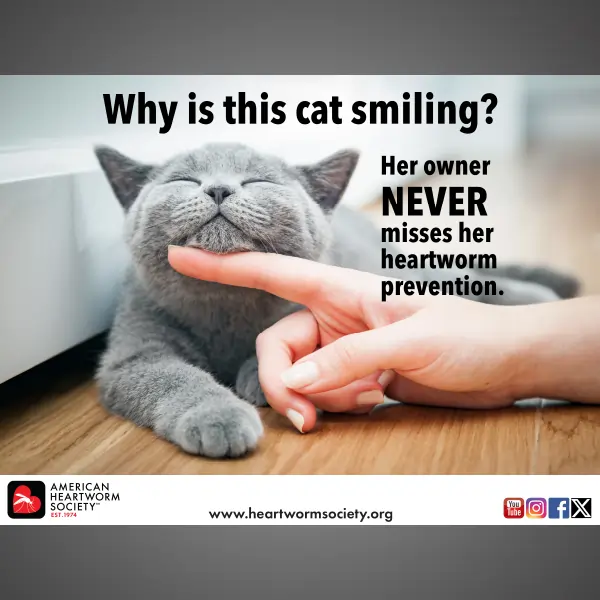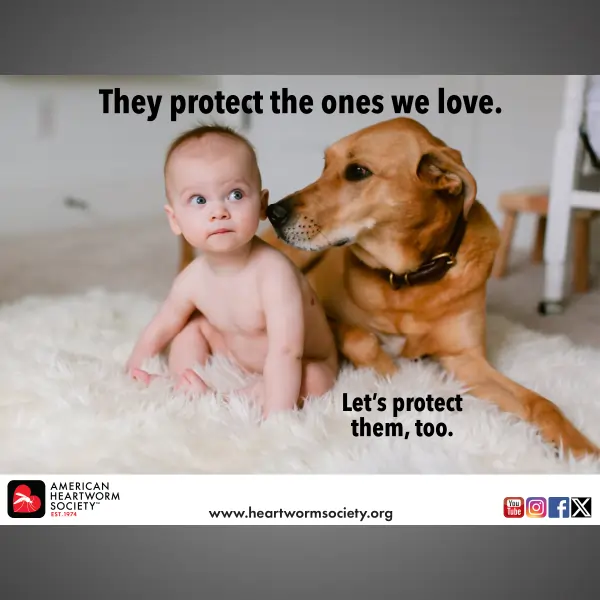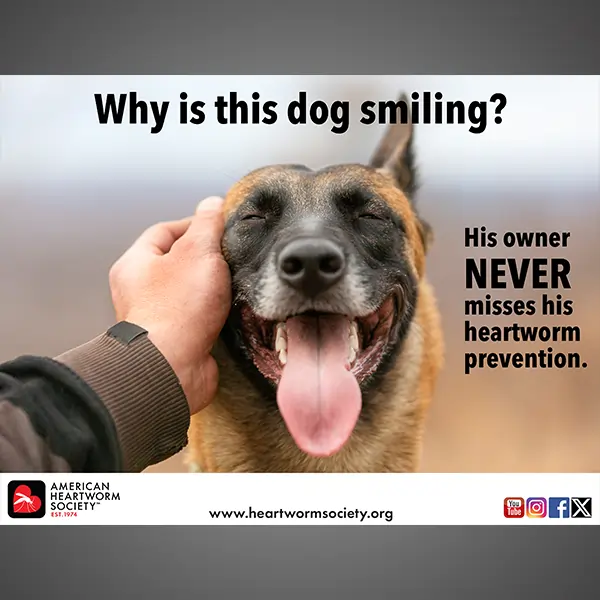Heartworms Unraveled
Welcome to the American Heartworm Society’s video training program, Heartworms Unraveled! These videos were created in coordination with veterinary parasitologists, practitioners, and certified veterinary technicians to help veterinary technical students and staff feel more confident in their roles. Through these videos, you’ll learn how to communicate with clients more effectively about all aspects of heartworm disease, and come to understand the epidemiology, diagnosis, treatment, and prevention of heartworms.
We recommend watching this series of videos in the following order:
- Heartworm Biology and Lifecycle
- Heartworm Epidemiology and Diagnosis
- Heartworm Prevention and its Importance
- Heartworm Disease Treatment Strategies
- Feline Heartworm Disease
We also encourage you to explore all the additional practice resources across our website!
As the leading resource for veterinary professionals and the pet-owning public on heartworm disease, the AHS is committed to heartworm education. To make it possible for as many practices, shelters and staff members as possible to access “Heartworms Unraveled,” The AHS has elected NOT to attach a charge for accessing them. However, if it is within your practice’s means to make a small donation, it will help us defray the program costs and ensure we can expand our training and educational offerings in the future.

Each of the speakers in the series is introduced by AHS President, Dr. Jenni Rizzo. Paola Dominguez-Lopez, CVT, brings a technician’s perspective to each of the topics by adding clinical applications following each speaker presentation.

Paola Dominguez-Lopez is a Certified Veterinary Technician with the Veterinary Community Outreach Program at the University of Florida Small Animal Hospital in Gainesville, Florida. Paola has served on the AHS Board since 2021 and has been instrumental in the development of programs for technicians and in the translation of multiple AHS resources.
Heartworm: Biology and Lifecycle
In this veterinary nurse/technician training video, veterinary parasitologist and UGA Associate Professor Dr. Andy Moorhead provides an overview of the heartworm life cycle, using images and illustrations to explain how dogs, cats and other animals become infected with this parasite. CVT Paola Dominguez-Lopez concludes the video with a case study that illustrates how technicians can discuss and educate clients about this complex topic and discusses tools that can be used in practice.
Dr. Andy Moorhead is a board-certified veterinary parasitologist and is Associate Professor at the University of Georgia. He also serves as Director and Primary Investigator of the Filariasis Research Reagent Resource Center. Dr. Moorhead has served on the AHS board since 2016 and is currently the Program Chair for the 2025 Triennial Symposium.
Heartworm Epidemiology and Diagnosis
Dr. Lindsay Starkey is a board-certified veterinary parasitologist. She recently joined the faculty at Oklahoma State University’s College of Veterinary Medicine as a tenured Associate Professor after spending seven years with Auburn University’s College of Veterinary Medicine. Dr. Starkey has served on the AHS Board of Directors since 2019 and is currently our Publication Editor.
Heartworm Prevention and its Importance
In this veterinary nurse/technician training video, veterinary practitioner and American Heartworm Society Past President Dr. Chris Duke shares an overview of why year-round heartworm prevention for pets is so important. His talk covers heartworm incidence in the U.S., the heartworm life cycle, the mosquito vector and its control, heartworm diagnosis and some of the options for heartworm prevention in pets. CVT Paola Dominguez-Lopez concludes the video with a case study that illustrations how veterinary nurses/technicians can discuss heartworm prevention with clients and how to help them find the prevention option that fits their pet, their lifestyle and their budget.
Dr. Chris Duke is co-owner of Bienville Animal Medical Center in Ocean Springs, Mississippi. He is a member of the American Society of Veterinary Journalists and contributes regularly to several publications. Dr. Duke has served on the AHS Board since 2016 and served as Board President from 2019-2022.
Canine Heartworm Disease Treatment Strategies
Dr. Tom Nelson is Medical Director at the Animal Medical Centers of N.E. Alabama, based in Anniston, Alabama. He has served on the AHS Board since 2001 in many capacities including President, Past President, Director, and Program Chair, and is currently our Research Committee chair.
Feline Heartworm Disease
In this veterinary nurse/technician training video, feline practitioner Dr. Mark Cousins, who practices in New Orleans, provides an overview of feline heartworm disease, including an overview of the pathophysiology, clinical signs and diagnosis of this complex disease. CVT Paola Dominguez-Lopez concludes the video with a case study that illustrates how technicians can discuss and educate clients about this heartworm disease with cat owners and discusses educational resources that can be used in practice.
Dr. W. Mark Cousins is a board-certified feline practitioner with 40+ years of experience in practice in New Orleans, Louisiana. He lectures frequently on feline medicine topics and serves as the Feline Regent for the American Board of Veterinary Practitioners. Dr. Cousins has served on the AHS board since 2022.
Need quiz questions (instructors only)? Email us at info@heartwormsociety.org
Additional Resources
Heartworm Life Cycle Video
This video, which was designed for pet owners, is a great teaching tool that uses illustrations and animations to help clients understand the complex heartworm life cycle.
AHS Heartworm Guidelines
The AHS Guidelines on canine and feline heartworm provide comprehensive information on the epidemiology, life cycle, diagnosis, prevention, and treatment of heartworm disease.
Heartworm Treatment Dosage Calculator
This handy online app enables users to quickly and easily calculate the timing and dosages of medications used in heartworm treatment for individual patients.
Heartworm Incidence Maps
The AHS has conducted a U.S. heartworm incidence study every three years since 2001, and uses the data gathered to create detailed heartworm incidence maps.



